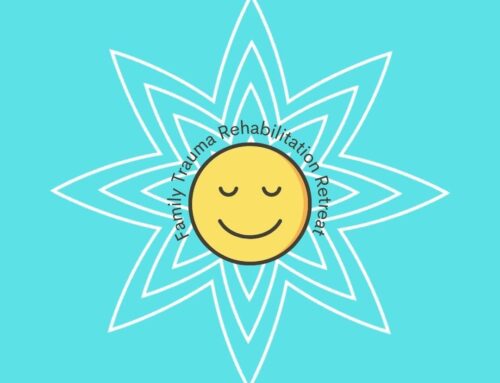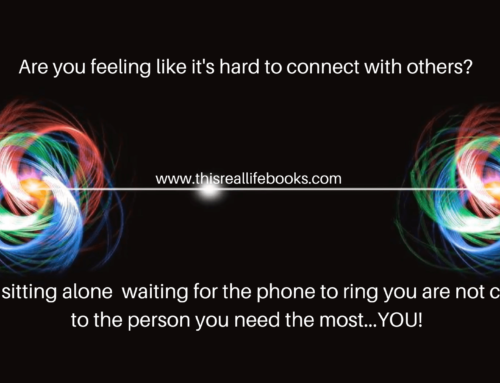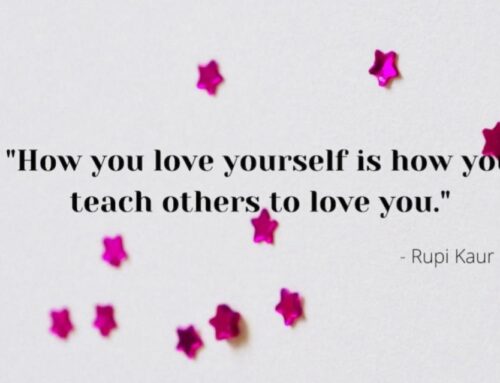Like 20% to 30% of women and about 3% to 8% of women in their 4th decade of life, I deal with bouts of depression during my cycle caused by PMDD! I also had a tough time after the birth of my son with postpartum depression. It’s lonely and even lonelier when you don’t have someone who can be compassionate about it and support you. In my case, someone who was burned out because they grew up with a bipolar mother who refused to medicate to give anyone else an emotional break. So, your pleas for help are met with “boohoo poor you” comments because something in their childhood shut off Emotional Empathy for their survival. The downside of Emotional Empathy occurs when people cannot manage their own distressing emotions can be seen in the psychological exhaustion that leads to burnout. The purposeful detachment cultivated by those in the medical field offers one way to inoculate against burnout. But the danger arises when the emotional detachment leads to indifference rather than well-calibrated care. My personal need for understanding was not met with empathy by the person I needed. That’s what childhood trauma does to some people, and it’s challenging to see it in yourself.
The most painful part of PMDD depression is you can feel it coming, and try as you might, it still kicks you in the gut. You have sort of an out-of-body experience hovering above the person you usually are and watching it happen in slow motion while reaching for an anchor that is not there. Having past trauma and children adds even more layers.
When you have inner child trauma while raising children, you must cultivate self-awareness and Compassionate Empathy. Goleman explains, “the ability to feel what others feel and take steps to help them or to support them to help themselves” is imperative to get through those days and sometimes weeks of sadness that you need to be supported (Goleman, 2006). You can put yourself into depression by beating yourself up about something you have little to no control over, so self-compassion is vital and rarely taught.
Hormonal depression is nothing to feel shameful about. Unfortunately, it is what it is, and you may be lucky enough to have people around you that choose to make you laugh when you’d rather cry. Be a shoulder to call on or, sadly, someone who doesn’t care enough to support you through it because they can only manage Cognitive Empathy. “This kind of empathy is excellent for managers to motivate employees but will not be helpful in a relationship” (Goleman, 2006). Doctors tend to use this detached empathy and seem cold and unfeeling.
Whoever is there supporting you or not, there is one thing that is a fact. PMDD is not your fault, and do not deny your feelings! It’s easy to be gaslit by people and society that say you are merely a negative person even though you are out in the world smiling at any other time of the month. So feel it and get help because you are not alone. Like all traumas talking about PMDD heals! So talk to your friends, family, or anyone who will listen with Compassionate Empathy.
I found having a period tracker is a fantastic tool. It gives you insight into that sudden change, and you may need to start medicating. When explaining your current emotional state to your kids, tell them the truth and that you are not feeling emotionally well. Tell them directly that you may need some time to yourself and find someone to help you make that happen but make sure your children know it’s not about them. Say it as many times as you need. Children are emotional sponges, and they can sense when their parents are not well, and their aptitude for Emotional Empathy or Resonance is predictable. Children need attunement to feel secure and develop well, and throughout our lives, we need attunement to feel close and connected.
So, be honest with your children. They need to know that you are a multi-faceted human being. They may not understand all the details, so don’t try to give them all unless they ask. My son asked, so I made it a sort of science lesson! “Momma doesn’t get enough serotonin or happy brain juice during her menstruation, that woman time when mom spends a lot of time in the bathroom, but I’ll be fine after it passes. So be gentle with me okay? My irritability and/or tears are not about you.”
It doesn’t usually work to quell his tantrums or neediness all the time at this age, but I’m hoping these words will seep in overtime like most habits and lessons repetition is key. It also makes me remember something I used to say while teaching my English classes “When I remind you, I remind myself.” I know for sure that it adds to children’s ability to grow into empathetic adults. Also, APPOLOGIZE! We all are just children walking around in adult suits pretending we have it all figured out while we spread our trauma to everyone we meet, especially our children. Teach your kids accountability by being accountable and making amends.
Take care of yourselves, Mothers, and Fathers! If your cup is empty, you have nothing to give.
References/Dictionary
1)PMDD Premenstrual dysphoric disorder (PMDD) is a health problem that is similar to premenstrual syndrome (PMS) but is more serious. PMDD causes severe irritability, depression, or anxiety a week or two before your period starts. Symptoms usually go away two to three days after your period starts.
2)Emotional Empathy makes someone well-attuned to another person’s inner emotional world, a plus in any wide range of callings, from sales to nursing – let alone for any parent or lover.
3)Compassionate Empathy is the ability to feel what others feel and take steps to help them or to support them to help themselves.
4)Cognitive Empathy is merely knowing how the other person feels and what they might be thinking. Sometimes called perspective-taking, this kind of empathy can help in, say, a negotiation or motivating people.
Goleman, D. (2006). Emotional Intelligence: Why It Can Matter More Than IQ (Revised ed.). Bantam.




